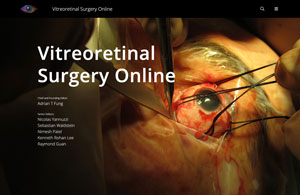11 Examination Preparation
11.5 Evidence-Based Medicine with Respect to Exit Examinations
Ophthalmological practice for both the individual patient and the community-at-large should be based on the best available evidence. A competent and safe general ophthalmologist should be aware of Evidence-Based Medicine (EBM) principles and be up to date with recent studies. It is expected that a candidate for fellowship examinations have knowledge of sentinel studies which help guide modern day ophthalmic practice.
Chapter 13 Clinical Trials outlines many, but not all, of the most important studies relevant to the general ophthalmologist at the time of writing. A successful examination candidate is expected to be able to reference clinical trials which are applicable to the patient’s condition in question.
In both written and clinical exam scenarios, it is unwise to spend time discussing the minutiae of clinical trials unless directly asked in the question. An acknowledgement of the study (or studies) and brief outline as to their findings, and why this is relevant for the patient in question, is commonly all that is required.
In the clinical exam, you can approach the use of EBM from one of two ways:
- When asked for the management of a patient’s condition, give your answer along with the evidence to support it. Be prepared for questions that may probe your answer and reasoning
- When asked for the management of a patient’s condition, give your answer but withhold mentioning what evidence supports it. If necessary, to discuss relevant EBM in the station the examiner may prompt the candidate to “name a study which helps direct your treatment of this patient and why”. Some candidates use this exam technique to avoid accidently saying something incorrect or controversial in a setting where they may not be as familiar with the studies involved
With time and practice you will become familiar with scenarios that lend themselves to a discussion of evidence, most commonly medial retina and glaucoma conditions.
Do not leave familiarisation with the studies until the last minute. There are many studies with similar acronyms and trying to “cram” them is confusing and stressful. Incorporate evidence discussions into your daily clinical practice using the provided list and as you study, annotate and add to it.
All rights reserved. No part of this publication which includes all images and diagrams may be reproduced, distributed, or transmitted in any form or by any means, including photocopying, recording, or other electronic or mechanical methods, without the prior written permission of the authors, except in the case of brief quotations embodied in critical reviews and certain other noncommercial uses permitted by copyright law.
Vitreoretinal Surgery Online
This open-source textbook provides step-by-step instructions for the full spectrum of vitreoretinal surgical procedures. An international collaboration from over 90 authors worldwide, this text is rich in high quality videos and illustrations.
